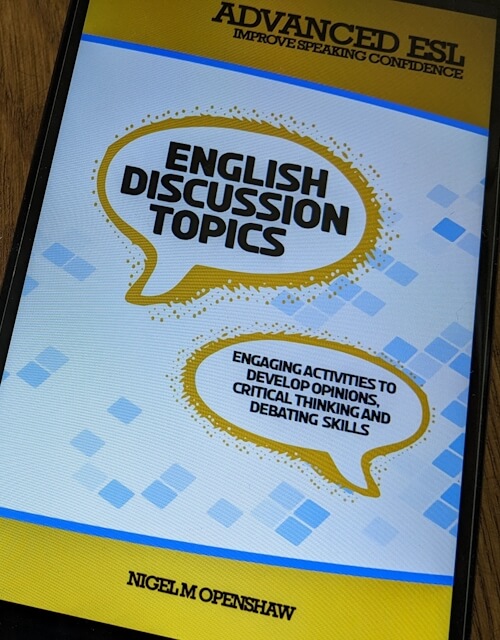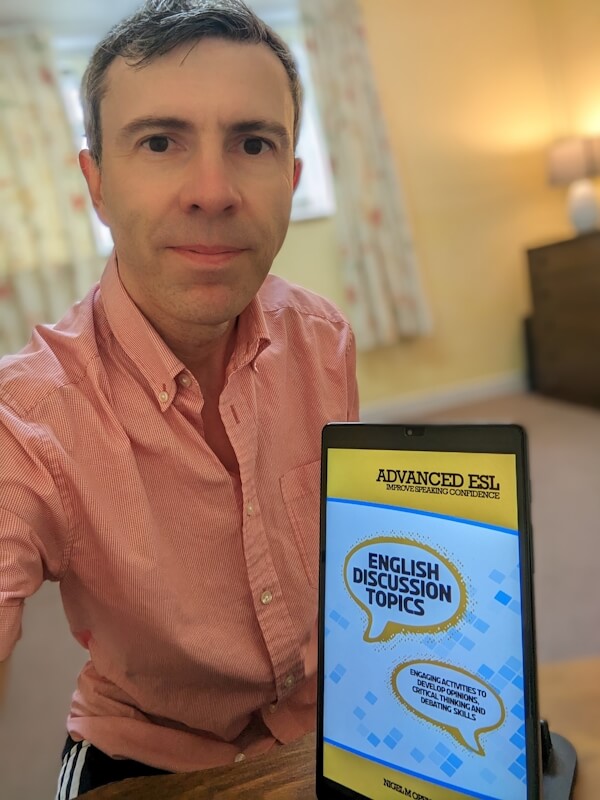 Discover the perfect companion for classroom discussions with this practical resource full of low-prep exercises and thoughtfully selected materials for improving English conversation.
Discover the perfect companion for classroom discussions with this practical resource full of low-prep exercises and thoughtfully selected materials for improving English conversation.
The flexible exercises can seamlessly integrate into your lesson plans. With my extensive ten years of teaching experience, I have chosen these resources based on the most engaging classes I've conducted.
Each chapter features a comprehensive To-do list and a convenient Reference section with supplementary materials. This user-friendly format ensures that you can effortlessly dive into teaching while staying on track throughout the process.
By utilizing these valuable materials, your students can reap numerous benefits. Using suitable materials can bring so many benefits to the class:
- REFINE YOUR SPEAKING SKILLS: Enhance your ability to express yourself confidently and effectively.
- ENHANCE CONVERSATION TECHNIQUES: Improve the quality and engagement of your interactions.
- MASTER FOLLOW-UP STRATEGIES: Develop the skills to sustain meaningful discussions.
- ENGAGE IN FACT VS. OPINION DEBATES: Foster critical thinking through analytical discussions.
- EMBRACE EVERYDAY PHRASES: Familiarize yourself with common sayings for natural communication.
- NAVIGATE MORAL DILEMMAS: Cultivate empathy and ethical decision-making.
Discuss topics like "Monet is one of the most famous artists," use idioms such as "let sleeping dogs lie," or discuss a moral dilemma like "you found money at a bank ATM."
This book offers low-prep conversation exercises and materials to enhance students' vocabulary, conversation strategies, and conversational skills.
Are you ready to simplify lesson planning and unlock students' full potential? Don't miss the opportunity to make a real impact in your classroom. Grab your copy today and embark on an enriching teaching journey!


